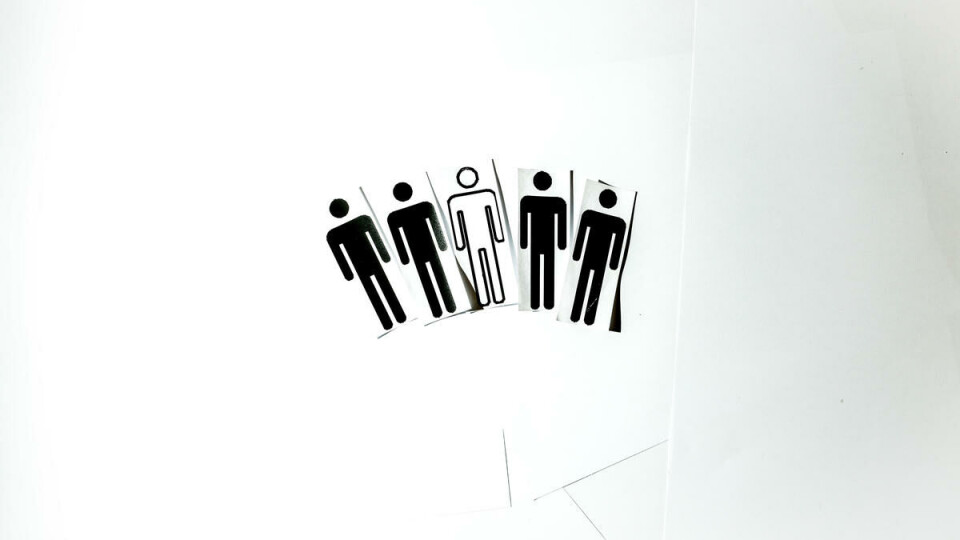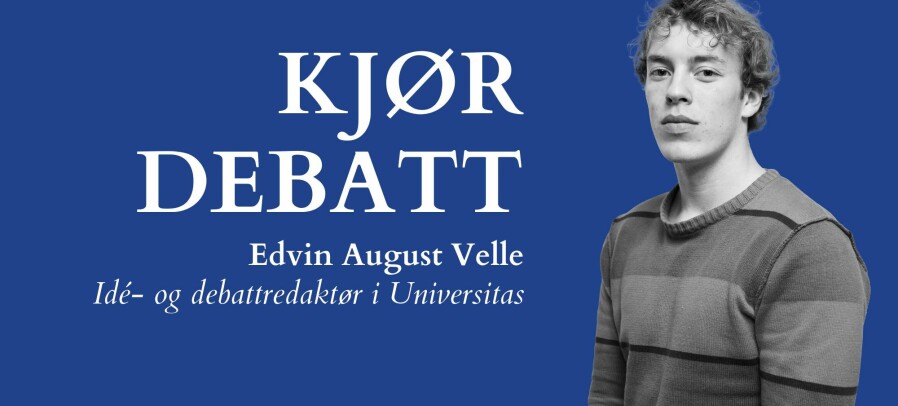
Oda dreads attending lectures: «He asked if I wanted him to rape me»
A recent report shows that one of five students have experienced discrimination. Comments from peers and staff have made Oda’s day-to-day life as a student into a struggle.
«Last week I tried to show up to two lectures. That’s the first time this last semester that I’ve shown up at one. For now, I’ve been labelled as the person who not only has problems, but complains about them, too,» Oda tells us.
Oda started her sex-change operation as a student. Being transgender has led to many uncomfortable situations from peers and faculty, to the point where she no longer manages to show up to lectures. During the previous semester, Oda had been involved in a process with the administration of her institution after alerting them of many issues, but she does not think that they have managed to provide a better learning environment for her.
Oda chooses to remain anonymous, in order to protect those involved in the case. Universitas has received access to parts of the documents showing the process she has been through at her university.
«The worst thing is probably when you are around people who keep telling you they accept you. Yet, at the end of the day, you’re still the person who’s a little bit different from everyone else. Excluded. [They say] ‘It’s nice that you’re interested, but today is for girl-girls,’» says Oda.

Exclusion and comments
A report conducted by Sentio on behalf of Universitas and the Norwegian Student oOganization (NSO) shows that 21 percent of Norwegian students have experienced discrimination based on gender, gender identity, ethnicity, religion, or handicap throughout their studies.
Oda has been through many situations which can be characterized as harassment or discrimination after she came out as trans. She tells us that she receives remarks and threats from other students, and is excluded from social and sports events led by different student associations. Even faculty members at her university have allegedly made inappropriate remarks.
When she asked about whether she could be absent from two lectures about transsexuals, in a course on gender studies, while going through a sex change operation herself, she was allegedly told to drop out of the class if she was going to be so sensitive about it.
«So I had to sit and watch the lecturer bring up a photo of a small boy in a dress, while she asked the room what we thought about it. People around me said things such as that they would be sceptical if they had a transsexual son. I wanted to crawl into a hole. My heart and chest just imploded,» Oda said about the experience.
In one case there was a student who jokingly threatened to rape her.
«He asked if I wanted him to rape me. He grabbed the person sitting next to him and suggested that he could hold him in place while I was forced to give him a blowjob,» says Oda.
Serious numbers
The leader of NSO, Mats Johansen Beldo, is worried about the high rate of discrimination.
«Discrimination should not be happening, and it’s very serious that 1 in 5 students have experienced discrimination,» he says.
«Those in charge of institutions have to take their duty of providing a good learning environment seriously, and government-elected officials have a responsibility to strengthen the laws regarding the students’ learning environment in order to ensure that proper assistance be provided, should a case of discrimination arise,» Beldo added.
Jan Tore Sanner, Minister of Education and Integration, condemned discrimination at Norwegian educational institutions:
«I want to be perfectly clear that it is unacceptable that students experience discrimination and harassment during their studies, and that I expect institutions to follow up on every single situation and take care of those involved.»
For Oda, the most important thing is that these situations be taken more seriously:
«On one hand, the institution has done what they are required to do by the law. But the laws are so relaxed that they could have done more. The most important thing for me would have been if the institution said that they understand what’s going on, and that it is not okay. To be heard. To be accepted.»
Students are particularly at risk
Jon Rogstad is a professor in sociology, researcher on minorities and work life at FAFO, and is an expert on discrimination.
«If people feel that they are excluded from a community that they would like to be a part of, not based on their actions, but because of who they are, then that is problematic. The individual as well as society loses when people don’t have a chance to do what they are good at, because of discrimination,» he says.
He points out that people associate different things with discrimination, ranging from rather mild experiences to more serious ones. Nevertheless, he thinks the survey shows a significant number given that so many students have experienced something they feel is not okay.
Katrine Klyve, who is the student ombudsman at OsloMet, says the school received seven inquiries related to harassment or discrimination in 2017. The student ombudsman at UiO, Marit Solvik, says they received more than a few reports of this kind of activity throughout the last year. However, based on surveys presented in the media, Solvik thinks it is likely these events are underreported.
«Students will possibly encounter the mentor or professor they report in classes later on, and may be afraid of uncomfortable situations if they speak up,» says Solvik.
While the work-environment laws have a set of directions as to how cases of harassment should be handled, it is not bound by law in the same way for students. The university and college law dictates it is the administration which is responsible for the learning environment and for the students’ psychic work environment, but not much more than that.

Lacking resources
According to Ole-Fredrik Einarsen the senior advisor in the equality- and discrimination ombud office, it is important to have good routines for handing and prevention of cases of discrimination and harassment among students.
«We don’t get many reports from students. But we encourage those who experience discrimination to get in contact with us for guidance,» he said.
Oda feels the administration at her university has been unhelpful.
«I went to the institute’s administration in the autumn and said that someone has got to take action. The university and college law gives me the right to a good learning environment, and I did not have that,» she said. According to Oda, she was told they had no resources to help her.
Oda says the institution did not have their own guidelines for handling sexual harassment from before. They called in the students she reported for conversations, and warned them they could be expelled from campus if this kind of behavior continued.
«It got out of control. People were on the Facebook page of the school talking about me. The administration had to intervene and say people should not discuss individual students on the page. I was furious,» Oda said.
The pro-rector at the university does not want to go into details about the resolved case but said, «We are satisfied with the process, but these kinds of cases require a lot. We hope that all of our students can have a good study environment.»
































